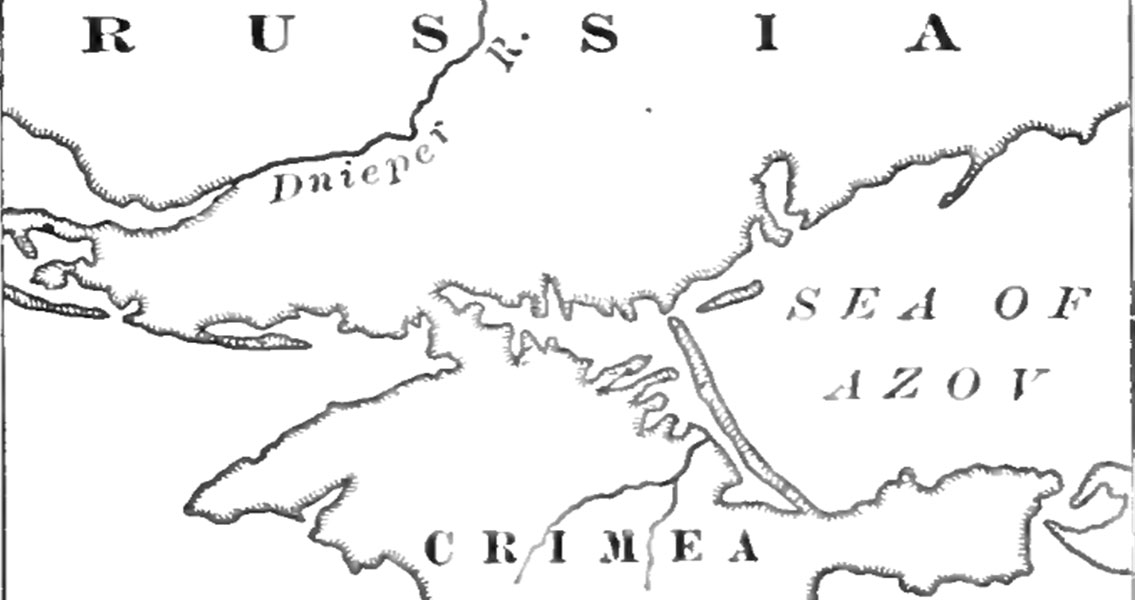<![CDATA[One of the major news stories this year has been the dispute between Russia and Ukraine over Crimea. A referendum in March officially saw the people of Crimea vote to become a part of Russia. The territory, and the relationship between Russia and Ukraine, have a long and interesting history. Ukraine was a part of the Russian Empire until 1917, when the country set up its own government, the central Rada, in the wake of the Russian Revolution. The following year Ukraine proclaimed its independence, leading to a violent civil war as various groups fought for power. Ukraine's initial independence was short lived, in 1921 the Red Army invaded two thirds of the country and renamed it the Ukrainian Soviet Socialist Republic. For the following twenty years Ukraine remained a part of the Soviet Union. The country suffered the consequences of Stalinism as much as Russia itself. In 1932 an estimated 7 million Ukrainians died as the result of a famine caused by collectivisation. In 1937 the country was the target of one of Stalin's purges, leading to the death or deportation of many of the country's intellectuals. In 1941 Ukraine suffered the fate of much of eastern Europe, and was occupied by the Nazis. Around five million Ukrainians died in the course of the war, fighting on the side of the Soviet Union against the Nazi invaders. The vast majority of the country's large Jewish population was wiped out during the Nazi occupation. At the end of the Second World War the country was once again annexed by the Soviet Union. Some 200,000 Crimea Tartars were deported to Siberia for alleged collaboration with the Nazis. Ukraine remained a part of the Soviet Union until its collapse in 1991. The years of Soviet domination witnessed a peculiarity however, one that laid the foundations for the current conflict over the region. In 1954 the Soviet leader Nikita Kruschev gave Ukraine a surprise gift - control over the Crimean Peninsula. This was a strange move, especially considering that just over a century before Russia had entered into a bloody war to secure its control over Crimea. The Crimean War was fought in the 1860s, and saw Russia involved in a conflict with Britain, France, Turkey and Austria. Russian foreign policy had been dictated for centuries by a desire to gain control of a warm water port in the south, to allow access to the Aegean, Black, and Mediterranean Seas. The conquest of Crimea granted Russia the sea port it needed, but the country now faced a situation where there was nothing separating its borders from the Ottoman Empire. The build up to the Crimean War started in 1853, when the Russian Tsar, Alexander II, demanded the right to protect Eastern Orthodox subjects living in Ottoman territory - an argument eerily similar to the justification for sending Russian troops into the Ukraine earlier this year. Russia attacked the Ottoman Empire in 1854, and Britain and France soon found themselves pulled into the conflict as they tried to exert their influence in the Middle East. Russia lost the conflict, and the war is generally considered a key event in the development of modern history. It highlighted that despite a vast numerical superiority, the Russian military was tactically and technologically far behind those of Western Europe. The Crimean War brought to an end almost forty years of peace in Europe, and reflected the shifting balance of power on the continent. In terms of the present day dispute, the Crimean War highlights the strong interest Russia has had in the region over the last two centuries. The current situation between Russia, the Ukraine, and 'the West' is a complicated one. History doesn't work in cycles, but the past can help us understand the broader context of the relationship between Russia and Ukraine, and the facts behind Russia's interest in Crimea. ]]>
Russia, Ukraine and Crimea
